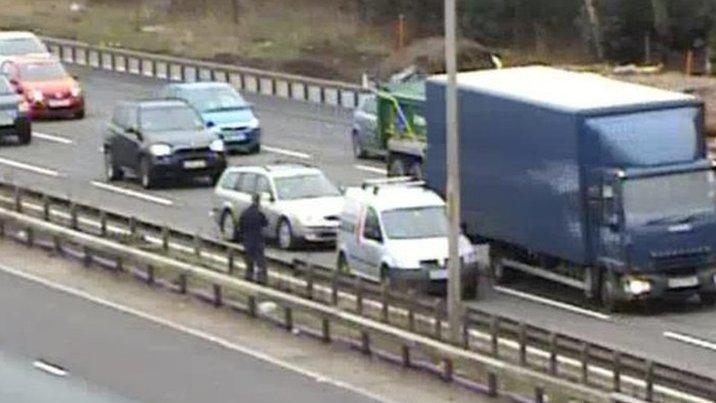Smart motorways catch more than 1,000 speeding drivers a week
- Published
- comments
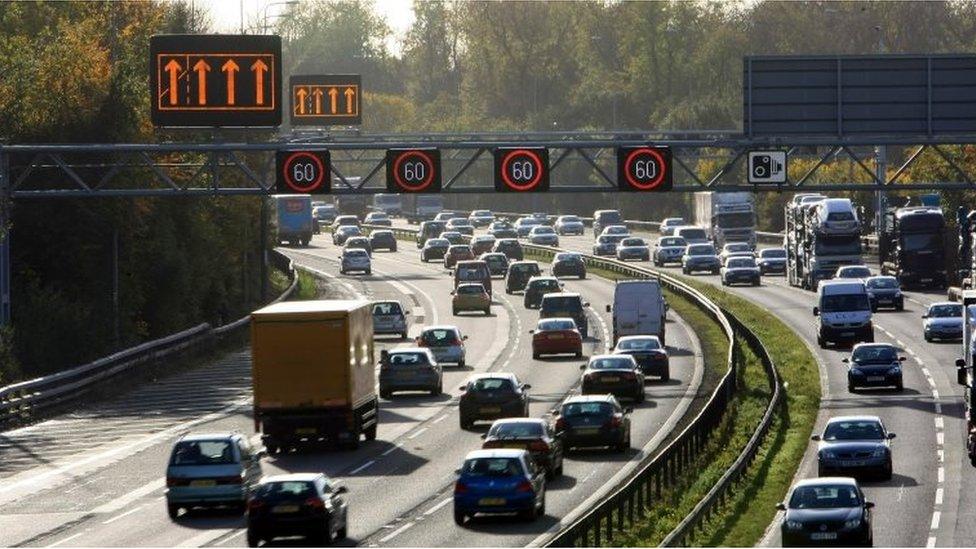
More than 1,000 motorists a week are being caught speeding on the UK's smart motorways, police figures suggest.
Last year, 52,516 fixed penalties were issued on 11 smart sections, including on stretches of the M1, M25 and M6.
This compared to 2,023 on the same stretches in 2010-11, before they were upgraded to smart motorways - which use the hard shoulder and variable speed limits to control traffic flow.
The government says they are used to improve capacity, not generate revenue.
Smart motorways are operated by Highways England, which uses overhead gantries - also containing speed cameras - to direct traffic into open lanes and change speed limits depending on the volume of traffic.
There are more than 236 miles of smart motorways in England.
A further 200 miles of smart motorways are currently either planned or under construction.
Revenue increased
The BBC's One Show asked 12 police forces in England that monitor major stretches of smart motorway, including parts of the M1, M25, M4, M42 and M6, for the total number of speeding tickets and fines collected.
The majority of forces responded, with half supplying directly comparable data, showing that a total of 52,516 tickets had been issued on these stretches in 2014-15, compared to 2,023 in 2010-11.
That meant the revenue going to central government every year increased to more than £1.1m, from £150,600 five years ago.
There is just one stretch of smart motorway in Scotland - on the M9 - which saw the annual number of tickets issued increase from nine to 41 over the four years.
Almost 250 people were caught speeding in the first three days after enforcement was introduced on the M4, near Newport. The system had been introduced in 2011 but was inactive for five years.
On one section of the M1 in Nottinghamshire, police issued 8,489 tickets, amounting to £425,000 of fines, in 2015.
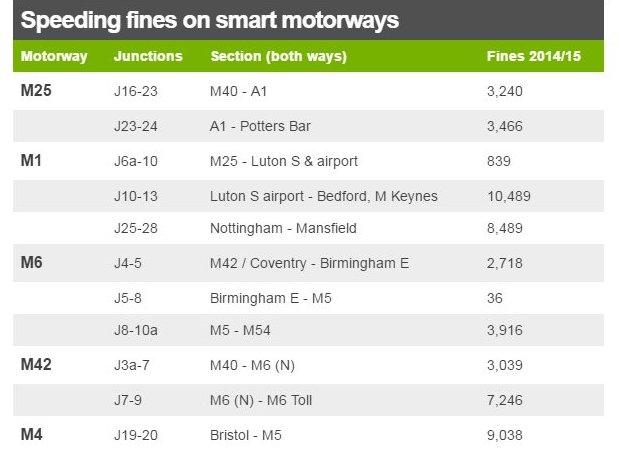
Source: Relevant police forces
Nottingham-based motoring lawyer Paul Wright said he had seen a "deluge" of cases along one stretch of the M1.
He told the BBC: "A cynic might say that it's another way of getting more and more money out of the motorist, over and above what we're paying already.
"And it's an easy way to extract fines from people, because once you're clocked over the limit by the camera, it's very difficult to fight against that."
And the AA told The One Show "questions need to be answered about the money being recouped".
It has also raised safety concerns about drivers having to use emergency refuge areas when the hard shoulder is removed to operate as an extra lane.
AA president Edmund King said more emergency refuges were needed and they should be twice as long, adding: "Only a couple of weeks ago one of our members broke down on a smart motorway. There was a red 'X' up but they still got hit from behind."
Cut congestion
With motorway traffic forecast to increase by up to 60% from 2010 rates by 2040, the government is pressing ahead with its £6bn investment in smart motorways.
A spokesman for the Department for Transport said: "Smart motorways smooth traffic flow and cut congestion for millions of motorists, with evidence from trials showing they are just as safe as regular motorways.
"Enforcement is a matter for the police and it is clear that speeding costs lives. However, we have been clear for a number of years that speed cameras should not be used to generate revenue."
Shaun Pidcock, from Highways England - which has published advice for motorists on smart motorways, external - said they were "the safest motorways on the network".
"We have 100% CCTV coverage and we have people watching over them, making sure they're safe, and we can get people in the traffic office to them far safer and quicker than we can do on normal motorways."
For a full report, watch The One Show on BBC One, at 19:00 GMT on Monday 7 November.
- Published30 June 2016
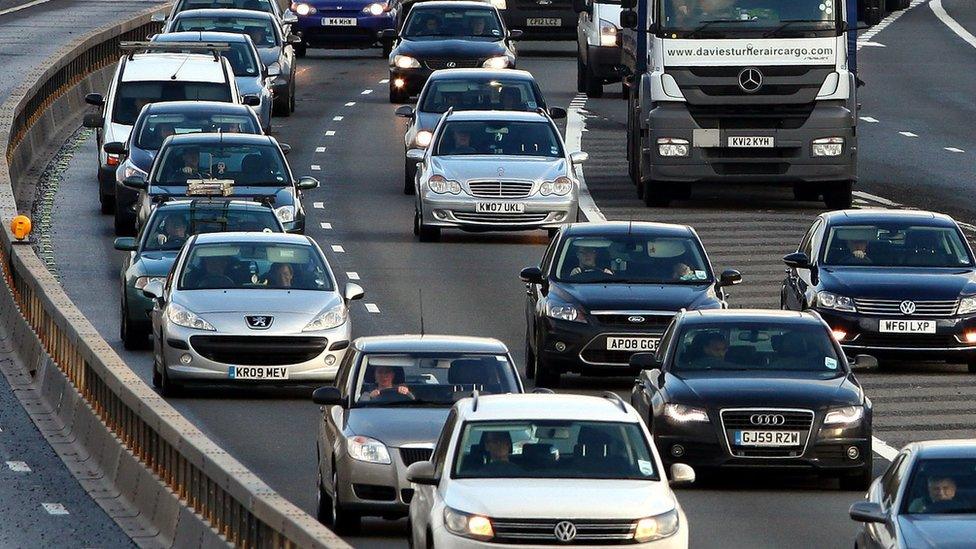
- Published13 April 2016
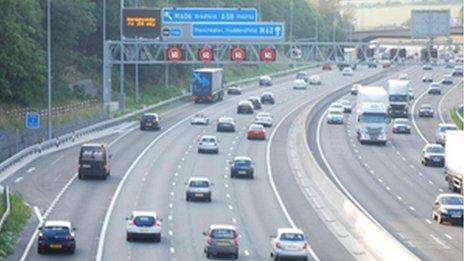
- Published12 April 2016
